Supply Chain Ethics: Gabriella's Dilemma at CJ Fashions Sweatshops
VerifiedAdded on 2023/04/11
|5
|924
|440
Discussion Board Post
AI Summary
This discussion post addresses the ethical dilemma faced by Gabriella, an MBA graduate offered a Supply Chain Manager position at CJ Fashions, a company sourcing clothing from sweatshops. The response argues that Gabriella should prioritize the organization's objectives and the economic benefits the sweatshops provide to workers, particularly women in Bangladesh. It applies choice theory, autonomy, and utilitarianism to justify the existence of sweatshops, suggesting that workers rationally choose these jobs due to limited alternatives and the utility they derive from them. The post also references Kant's argument on self-determination and the invisible hand concept, supporting the idea that despite potential social injustices, the economic advantages and individual autonomy should be respected. It concludes that Gabriella should focus on ensuring the sweatshops remain operational, thus providing stable employment and meeting the workers' needs, while dismissing concerns about social injustice as ethically inadmissible in this context.
1 out of 5
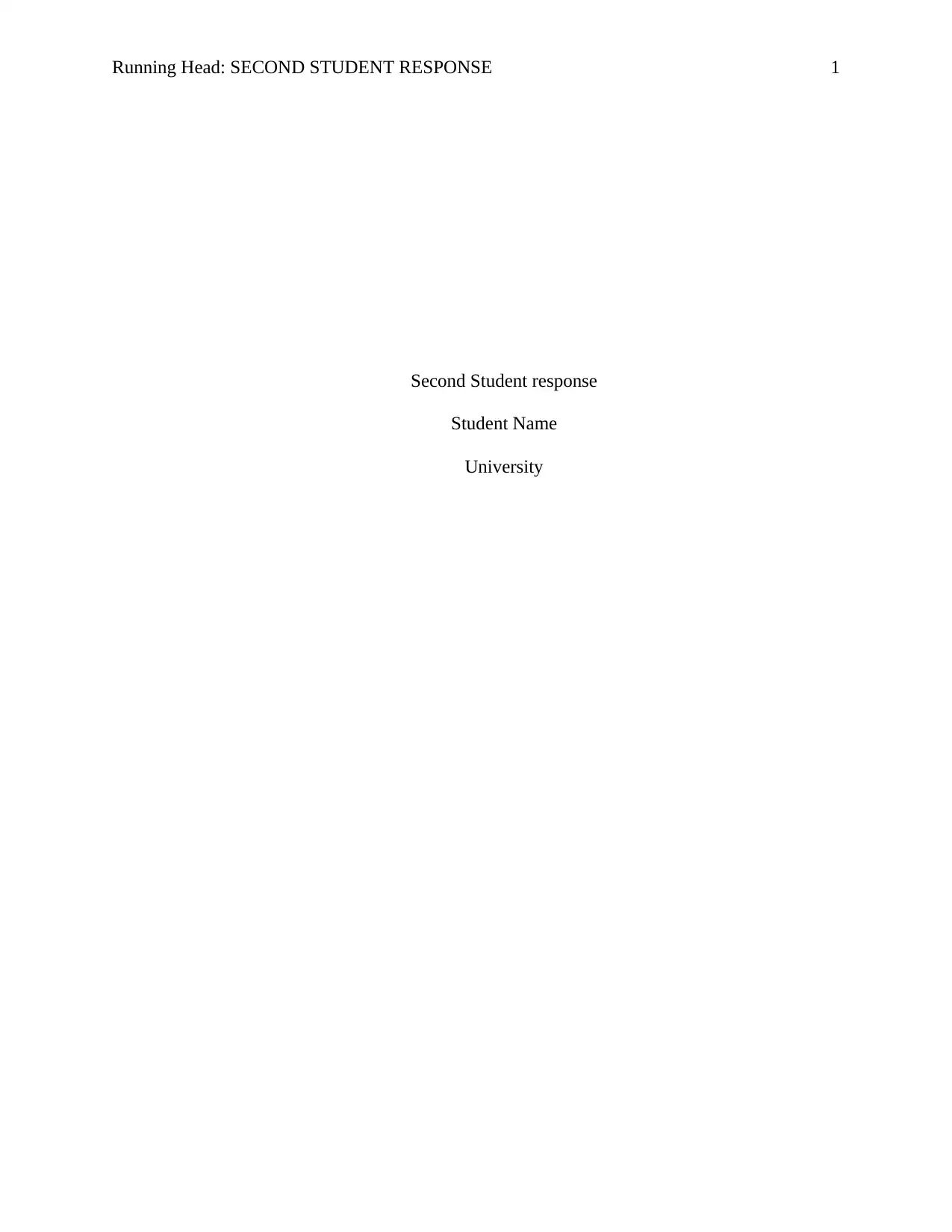
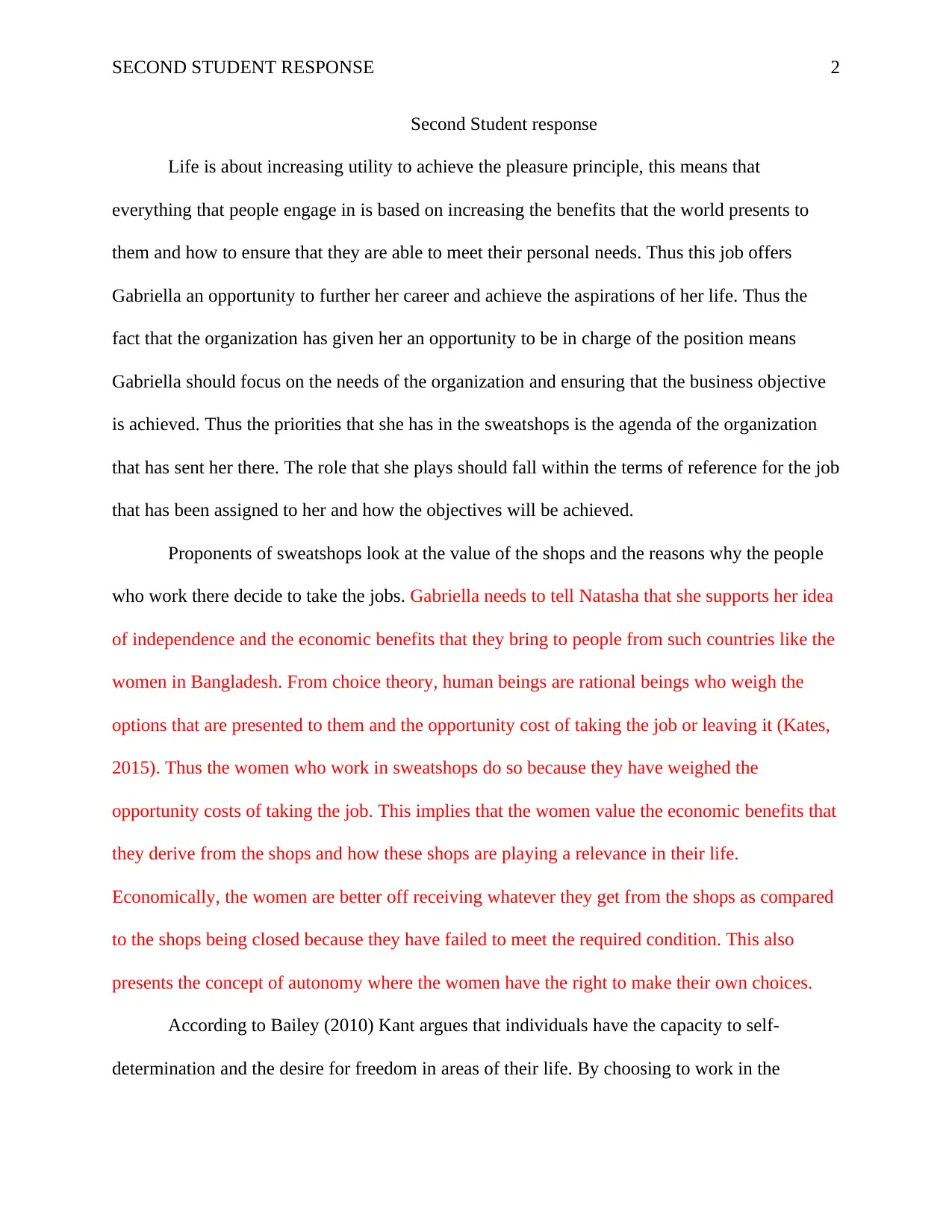
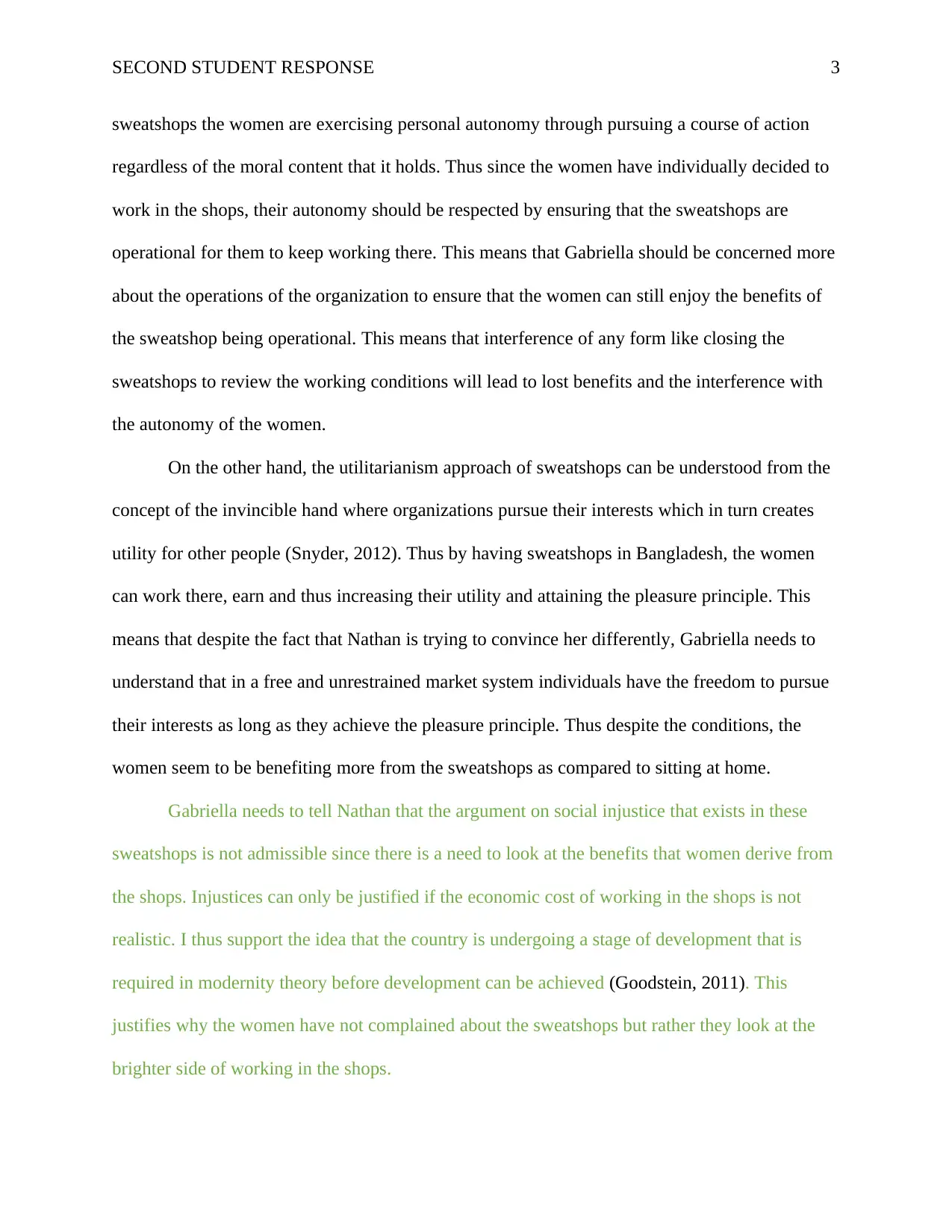

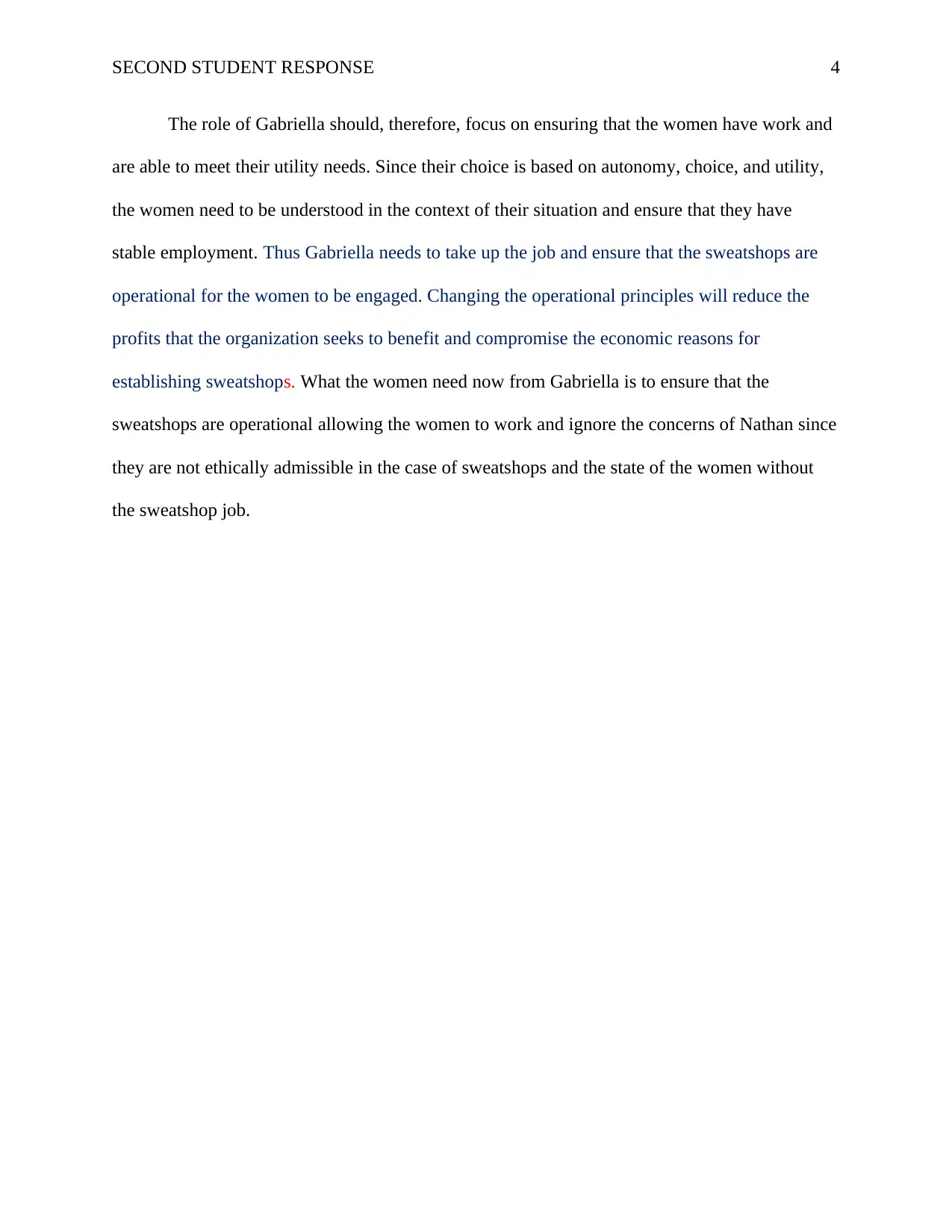
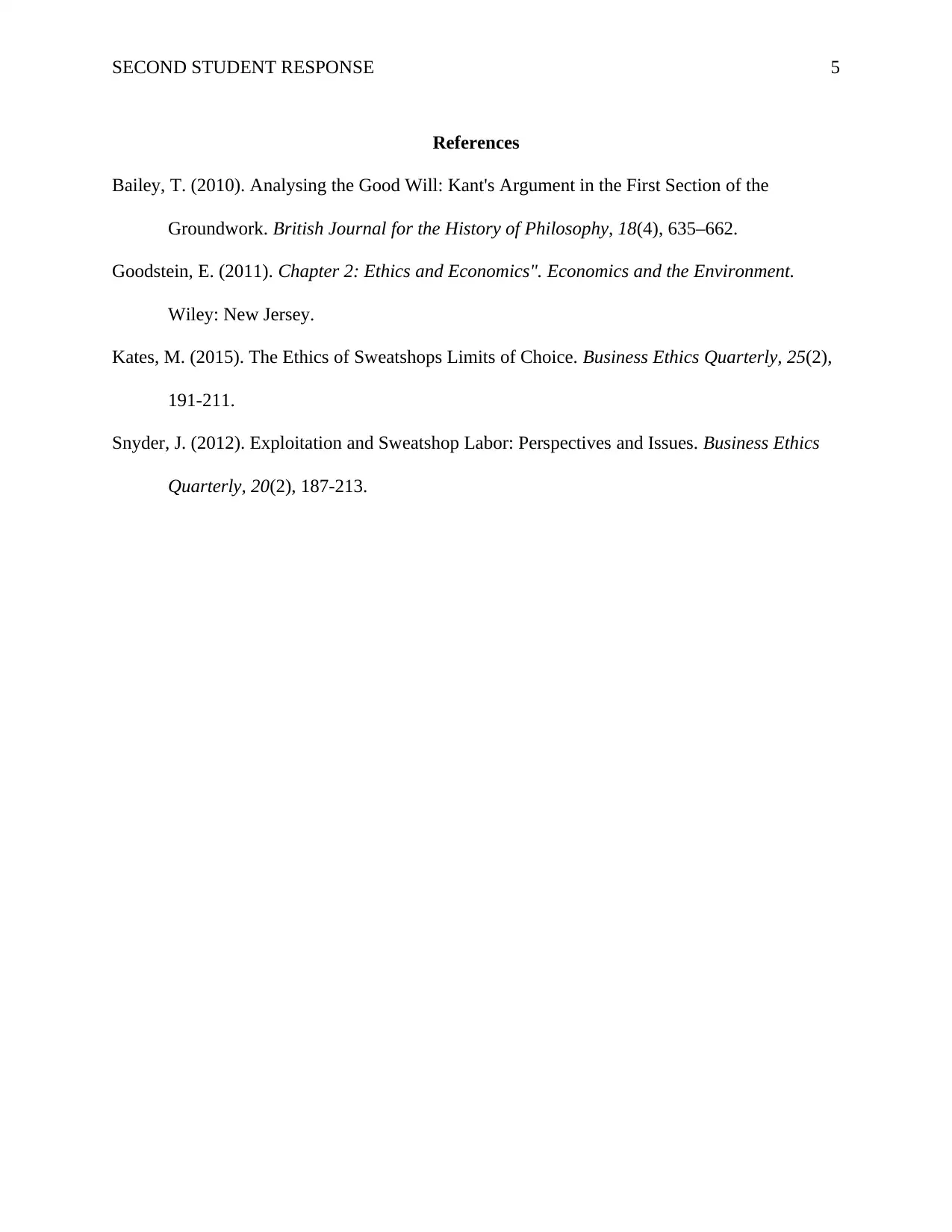






![[object Object]](/_next/static/media/star-bottom.7253800d.svg)